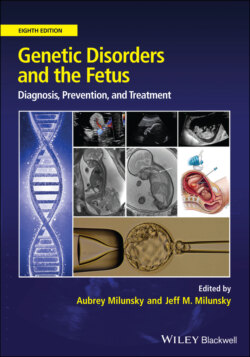Читать книгу Genetic Disorders and the Fetus - Группа авторов - Страница 31
Truth in counseling
ОглавлениеSince the time of Hippocrates, physicians have often withheld the truth from their patients and, as Katz298 emphasized in The Silent World of Doctor and Patient, defended the morality of this position. Sparing the patient emotional distress, removing hope, and/or diminishing the physician's personal esteem may have been some of the quintessential reasons for the lack of truth telling. While recognizing the modern change in moral sentiment, Lantos299 acknowledged that truth telling has become “morally obligatory.” Notwithstanding his preference that he “would not want a doctor judging the morality of my decision,” he remained uncertain about the value of the “comforting lie.”
Situations have arisen in genetic counseling where facts have been distorted, de‐emphasized, or even hidden. Obstetricians opposed to abortion of an abnormal fetus have been known to provide incorrect or misleading information. That position is simply amoral, and flies in the face of the ethical principles of autonomy and beneficence. A physician or genetic counselor visiting their religious beliefs on a patient is totally unacceptable. In one medico‐legal case, the mother had a 25 percent risk of having a second child with severe intellectual disability and microcephaly. The obstetrician purposefully delayed the required ultrasound study to 28 weeks of gestation, after which pregnancy termination was impermissible. The state court, in addition to finding that physician negligent, levied a hefty punitive fine as well.
The enormous increase in DNA testing, including prenatal studies, has led to a corresponding increase in questions of nonpaternity. Prevalence estimates of nonpaternity vary widely,300–302 with a meta‐analysis noting a median of 4 percent in 17 studies.301 Discovery of a potential chromosomal abnormality (e.g. an inversion), a microdeletion or a microduplication, or concerning DNA variant, may unexpectedly reveal nonpaternity. This observation may rest on a Y‐chromosome karyotypic difference, haplotypes,303 or a Y‐deletion not found in the fetal DNA. A microarray may yield consanguinity (from runs of homozygosity) when the male partner is clearly not related (see Chapter 13). A biallelic DNA variant in the fetus may not be reflected in the putative allele of the “father of the fetus.” Once the nonpaternity has been discovered the question arises about informing the male partner, and telling the truth.
Much has been written about this dilemma.300, 304–308 Of course this potential family crisis could possibly be avoided when obtaining informed consent, at which time it should be made clear that paternity will be confirmed routinely if prenatal testing for other reasons is performed. Pregnant women given that information may decide to forego any testing.
The challenge providers face is the morality of nondisclosure, the potential for not only serious harm to the family unit but also, in some cultures, abandonment or potential serious injury or death to the mother.304 Some have argued that clinical significance should determine whether disclosure should occur.300 Where an inheritance pattern and explanation is necessary, for example, communication will be needed. In those circumstances the provider would be advised to first meet with the mother. However, clinical significance may not be immediately apparent. Avci recounts the poignant case of a 55‐year‐old father in kidney failure planning to receive a kidney transplant from his 35‐year‐old son.304 The HLA matching pointed to nonpaternity. The physician in that case met with the parents and son, confabulating that tests on the son indicated that being a donor was highly risky for him! The position taken by this physician would be justifiable according to well regarded ethicists,309 and in accord with the principle of beneficence. Other ethicists disagree, and maintain that veracity is an ethical principle310, 311 and rather than a moral rule, it is a prima facie obligation.304, 309 Like confidentiality, truth too is not absolute.
The paternalistic approach overrides all personal choices with the aim of protecting or benefitting the patient. Since this would occur without the patient's full knowledge or consent, it would be ethically unacceptable and in conflict with the principle of autonomy.310 The Kantian philosophy holds that lying is always wrong, regardless of circumstances.311
In today's world, the question of nonpaternity disclosure automatically invites legal purview.305, 306 Withholding information from the “father” directly violates the physician–patient “contract,” and establishes a cause of action for malpractice. On the other hand, a woman attending genetic counseling alone (not infrequent) could maintain her rights to privacy,312 the breach of which would inevitably end up in court. Much of enacted legislation in many states in the United States is focused on disclosures to third parties and not on the issue of concealing genetic information from a contracted party.305
Clearly, the discovery or realization of nonpaternity at the time of prenatal diagnosis is fraught with potentially serious personal, medical, social, and legal problems. The counseling provider has to be extremely adept in managing these cases. Warning about the potential discovery of nonpaternity as part of informed consent prior to testing313, 314 may lead a pregnant woman to decline an indicated chorionic villus sample (CVS) or amniocentesis. Nondisclosure is ill advised when nonpaternity is discovered. In the effort to do no harm, we have requested a counseling session with the prospective mother alone. Her decision, taken in confidence, would govern further action. If, however, testing of the misattributed partner has genetic implications, nondisclosure becomes legally untenable.
